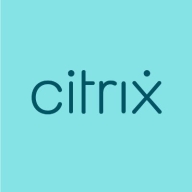

Citrix Gateway and Check Point Remote Access VPN compete in the remote access and network security market. Based on features and pricing, Citrix Gateway seems to have an edge due to its comprehensive security features despite higher pricing.
Features: Citrix Gateway offers significant features including web app support, VPN functionality, and load balancing which enhance its security and scalability. Check Point Remote Access VPN provides seamless access, multi-factor authentication, and strong integration with existing infrastructures, enhancing remote security for users.
Room for Improvement: Citrix Gateway can improve in areas like load balancing enhancements, better integration features, and costs. Users also suggest improvements in technical support and simplicity of setup. Check Point Remote Access VPN could benefit from simplifying configurations, better compatibility with Linux, and refining client interfaces for more seamless cloud integration.
Ease of Deployment and Customer Service: Citrix Gateway is adaptable across environments like on-premises and cloud, with variable tech support efficiency noted by users. Check Point Remote Access VPN is flexible across hybrid setups with somewhat effective technical support, though response time improvements are needed.
Pricing and ROI: Citrix Gateway is considered expensive but offers significant ROI with high-security features; subscription models are available. Check Point Remote Access VPN is seen as a more affordable option with competitive pricing ensuring good ROI, although caution is advised in license management.
It reduces the dependency on being physically present in the office and enhances the overall user experience, saving time and maintaining security.
I have seen a return on investment with fewer employees needed and time saved.
It has reduced the number of support tickets related to remote access by about 30%, saving our IT team significant time.
Citrix Gateway secures our environment from potential threats, which can save substantial financial resources, especially in preventing data breaches or ransomware attacks.
They are really helpful, and whenever we face any technical or configuration issues, we reach out to them, and they help us resolve the issues as soon as possible.
Contacting the Technical Assistance Centers (TACs) initially can be difficult, but once I get in touch with the TAC team, it is easy to solve problems.
The customer support for Check Point Remote Access VPN has been very helpful and responsive whenever we needed assistance.
Very experienced engineers contact you in order to troubleshoot the problem.
While there are multiple support tiers with priority response times of around 30 minutes, there appears to be a limitation in the number of technical teams who can immediately understand and resolve issues.
I don't see that we can hit any kind of roof in our organization.
The scalability of Check Point Remote Access VPN is good as it supports a large number of remote users simultaneously.
Our organization finds Check Point Remote Access VPN handles increased numbers of remote users smoothly without performance issues.
The solution features high availability, supporting both active-passive and active-active deployments to ensure constant product availability.
I believe that the scalability of Citrix Gateway depends on the project's requirements, as it can vary from simple load balancing to extensive Web Application Firewall implementations.
Citrix Gateway is not for small companies; it's for medium companies because the pricing is better for more users.
Otherwise, the experience and stability are outstanding.
I have not faced any issue, downtime, or latency with Check Point Remote Access VPN.
Check Point Remote Access VPN is very stable.
I find Citrix products to be very stable.
The response time is much worse, with the first layer of support lacking sufficient knowledge on how to troubleshoot issues.
Optimizing handshake speed and reducing reconnection delays would improve the user experience, particularly for mobile and hybrid workers.
Deploying these solutions requires higher technical expertise than other solutions.
At this time it costs 35% more than other solutions.
The main purpose of Citrix Gateway is to enforce the appropriate level of access to the correct user on the proper device under the correct conditions.
I'm getting the hardware at a very reasonable cost that fits my budget.
It is competitively priced, and we have chosen it for its market leadership in the firewall space.
The pricing, setup cost, and licensing are straightforward, though the setup is a bit expensive.
I consider Citrix Gateway to be an expensive solution, generally ranging from $5,000 to $15,000 yearly, depending on the model.
The price is one aspect, but technically it is complete.
The functionality enables secure access for remotely connecting users, which is necessary for our operations.
Check Point Remote Access VPN has positively impacted my organization by improving productivity and given us a workaround in times of downtime.
Check Point Remote Access VPN has impacted my organization positively by providing better security and ensuring our data is safe within the entity.
The product effectively helps me protect the organization's network from potential threats, thereby securing our environment from hackers and ransomware attacks.
It's easy to scale and easy to implement.
Secure SaaS access is particularly valuable as it ensures that SaaS-based applications are delivered securely.
| Product | Market Share (%) |
|---|---|
| Check Point Remote Access VPN | 3.3% |
| Citrix Gateway | 3.3% |
| Other | 93.4% |

| Company Size | Count |
|---|---|
| Small Business | 54 |
| Midsize Enterprise | 31 |
| Large Enterprise | 34 |
| Company Size | Count |
|---|---|
| Small Business | 15 |
| Midsize Enterprise | 9 |
| Large Enterprise | 16 |
Remote secure access VPN is a solution that provides users with remote access to an organization’s network. The host may have VPN client software loaded or use a web-based client. The solution leverages security features like multi-factor authentication, endpoint scanning, and encryption of all data in motion.
Check Point Remote Access VPN provides individuals with protected and efficient access to a company network from anywhere. This strategy fosters collaboration and connectivity between distributed teams and offices.
Features of Check Point Remote Access VPN
Key features of the secure remote access VPN include:
The system enforces endpoint security with endpoint compliance. It monitors and verifies the security status of each endpoint and reports back to the Security Gateway. The gateway, in turn, checks the compliance level and directs the connectivity to the right resources.
Users can deploy the Remote Access VPN in one of three ways:
Remote Access VPN is centrally managed. The centralized console enables management and enforcement of policies with a single log-in.
The Remote Access VPN has a web portal that users can use to connect securely to corporate applications, such as web-based resources, file-sharing, and email. Administrators can customize the web portal to match the brand identity.
Remote Access VPN offers two choices for remote access:
The authentication features include password management, RADIUS challenge/response, CAPI software, and hardware tokens. P12 certificates, and SecurID.
The system establishes a VPN tunnel on demand. It also re-arranges connections when roaming. The tunnel can automatically tear down when the user is on the corporate LAN.
There are several connection features, such as Hotspot detection, office mode IP, split tunneling, and automatic fallback to HTTPS.
Benefits of Check Point Remote Access VPN
One of the key advantages of Remote Access VPN is that it provides remote workers with a secure way to connect to a corporate network from any device, including their personal devices. The data encryption in transit enables them to securely access the resources they need for their tasks.
It also provides IT support and technicians with a faster way to troubleshoot software issues. In the case of a ticket, IT doesn’t need to go to the server location to fix the problem but can troubleshoot it remotely.
A remote secure access VPN is also an affordable alternative for small and medium-sized businesses, without requiring expensive infrastructure.
Reviews from Real Users
A Global IT Network and Security Service Senior Specialist at a manufacturing company who uses Check Point Remote Access VPN says, "I found the MEP feature the most valuable. This has improved users' latency allowing the users to connect to the nearest Azure Check Point VM."
"Organizations that already use the Check Point NGFW Solution do not require any additional hardware, which makes the implementation straightforward and reduces the time to go live," explains Basil D., Senior Manager at a financial services firm.
Manuel B., a Voice and data infrastructure specialist at a tech services company, says that "The IPSec VPN, Mobile Access, and Identity Awareness are three of the blades with which we have been working with since the pandemic. This has given us great mobility, making our network more dynamic."
Citrix Gateway is a customer-managed solution that can be deployed on premises or on any public cloud, such as AWS, Azure, or Google Cloud Platform. Citrix Gateway provides users with secure access and single sign-on to all the virtual, SaaS and web applications they need to be productive.
We monitor all Enterprise Infrastructure VPN reviews to prevent fraudulent reviews and keep review quality high. We do not post reviews by company employees or direct competitors. We validate each review for authenticity via cross-reference with LinkedIn, and personal follow-up with the reviewer when necessary.